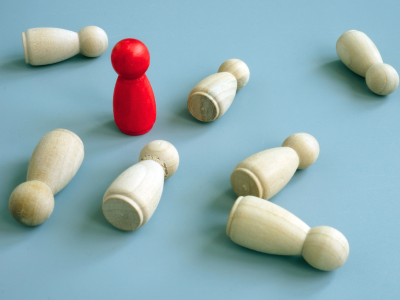“I’m so tired”.
Have you heard anyone say this recently? You may have said it yourself. If so, you’re not alone.
A lot of people have been telling me lately that they’re exhausted, and some are even on the brink of burnout. It’s raised repeatedly when I do check-ins during workshops and when asking friends how they’re feeling, and lately I’ve been noticing little energy in the people around me. For many, this tiredness shows up as boredom, difficulty focusing, feelings of irritability, a lack of motivation, disengagement at work, declines in productivity and reduced interest in previously-enjoyed activities.
Many of us are tired. Tired of COVID. At the start of the year, there was a belief that this was a short-term fight. Yet here we are months later still dealing with the fallout. ‘COVID-fatigue’ or ‘pandemic fatigue’ has been felt around the world recently, and is described as a state of exhaustion caused by the long-term effects of the pandemic.
It can be confusing to feel tired when right now we’re typically operating at a much slower pace than usual. However, the increased stress we’re experiencing, from the continuous changes to our lives and the uncertainty that still surrounds our futures, is contributing to our mental exhaustion.
At present, we’re also unable to turn to some of our regular coping strategies such as being around other people and spending long periods outside or on holidays. Yet one of the practices that we can prioritise that will help us feel less tired and enable us to recover from stress is to focus on our sleep.
How does sleep help?
Sleep plays a crucial role in our wellbeing, and is something to be prioritised as it supports us in a myriad of ways. Adults generally need eight hours of sleep per night, yet some need less than this and others need more.
When we don’t get enough sleep, it’s hard for us to be at our best. A lack of shut-eye can also make it difficult to regulate our emotions, it can lead to feelings of anxiousness and irritability, and can leave us less patient.
On the other hand, those who get deep, consistent rest tend to be healthier, have stronger immune systems (sleep and immunity are actually bidirectionally linked), have greater energy, are more productive, are able to stay calm and clear, and have lower levels of anxiety. Sleep also helps reduce our stress and recharges and restores our bodies for the next day. But of course, stress has a big impact on our sleep, and our sleep quality and sleep quantity can be hurt by feelings of loneliness, which have risen for many people whilst physically distancing themselves from others during lockdown.
How to sleep better
Getting a good night’s sleep is more in your control than you might think.
Researchers have identified a number of practices, known as ‘sleep hygiene’, which can help you achieve a restful slumber. Below are some of the habits you can try:
- Prioritise sleep
- Keep to a good sleep routine with a consistent bed and wake-up time
- Spend time in the natural light during the day to keep your internal clock on a healthy sleep-wake cycle
- Exercise and eat well during the day – avoid caffeine in the afternoon and alcohol altogether
- Stop mindless scrolling on your phone in bed – even better, try and keep devices out of your bedroom
- Take a warm bath or shower before bed
- If you’re struggling to fall asleep, you can try reading, listening to soothing music, completing a puzzle or undertaking a mindfulness activity such as a breathing exercise, meditation or expressing gratitude. There are lots of apps to help here!
Do naps work?
You may be interested to know, like I was, that the US Army’s physical fitness training field manual has recently been overhauled and now includes a chapter on napping!
Historically the Army held the belief that ‘real-men’ don’t need sleep. Yet it has now been learned that chronic sleep deprivation can cripple decision-making and performance, and lead to disasters during missions, which has happened in both Iraq and Afghanistan. The new manual advises that “soldiers can use short, infrequent naps to restore wakefulness and promote performance. When routinely available sleep time is difficult to predict, soldiers might take the longest nap possible as frequently as time is available.”
For those not in the Army, who may experience sleep loss at night, the suggestion is to take a short nap (no longer than an hour) before late afternoon. Although naps must be treated with caution as they can often be the reason why people struggle to fall or stay asleep during the night…
Rather than considering sleep a luxury, it should be deemed a priority particularly for all of us right now. So if you haven’t already, make sleep a part of your self-care routine!




